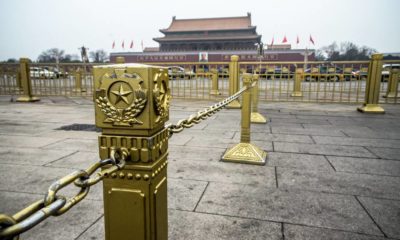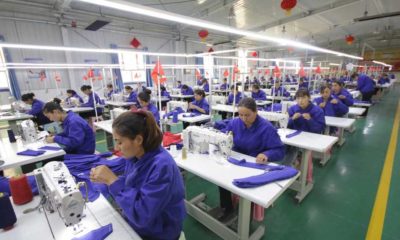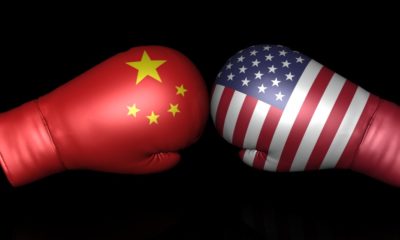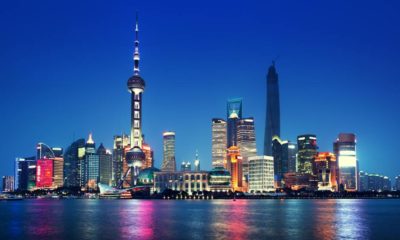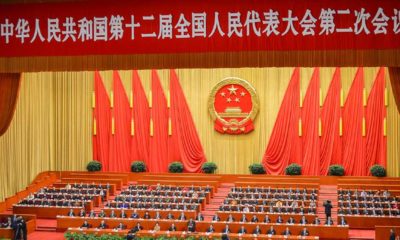Economy
US Bans China Solar Panel Imports With Forced Labor Ties
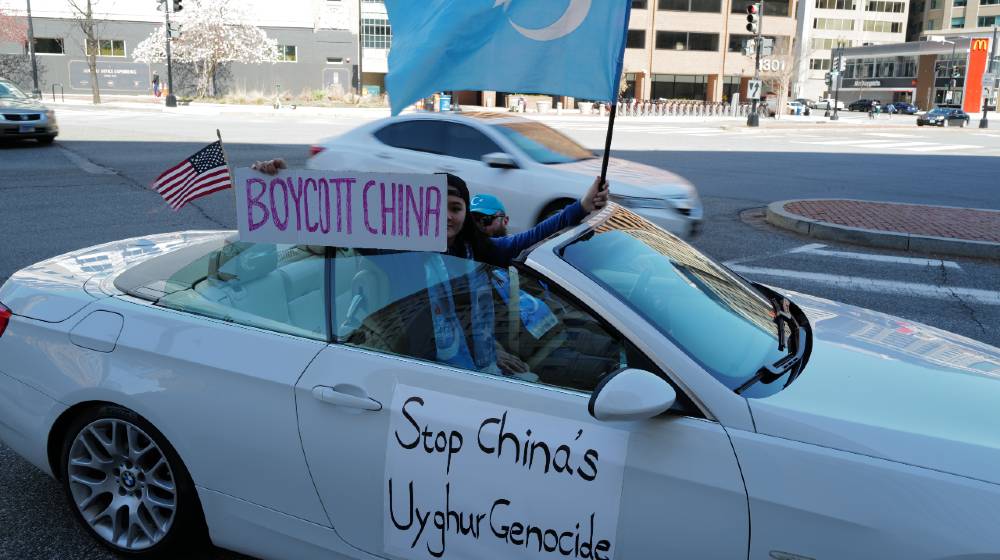
The administration of President Joe Biden announced a ban on solar panel imports from a major Chinese supplier accused of using forced labor. This move can potentially complicate the country’s clean energy program. It can also further chill its already cold relations with China.
RELATED: Rubio Calls On Wall Street To Stop Enabling Communist China
Allegations Of Forced Labor
On Thursday, the US Customs and Border Protection issued a ban on silicon products from Hoshine Silicon. Hoshine is a Chinese company that operates manufacturing plants in the Xinjiang region.
This region is allegedly home to companies that use forced labor. Ughyurs and other minorities often comprise the forced labor pool.
However, cutting off Hoshine is sure to cause some complications. Many solar industry suppliers source their materials from Hoshine. In fact, the company is the world’s largest producer of metallurgical grade silicon.
This is the key component of all solar panels. Johannes Bernreuter, a German solar supply chain research analyst, noted the Hoshine's reach. He said that Hoshine affects almost the entire global solar industry.
Hoshine Supplies The Entire Solar Industry Materials
At a news briefing, CBP officials confirmed the ban on Hoshine-supplied solar panels. Homeland Security Secretary Alejandro Mayorkas hinted that the order also covers other products.
However, agency officials did not elaborate on what the other products are. Mayorkas noted that silica is a key raw material for solar panels, electronics, and others. The CBP issued this order due to information that Hoshine uses forced labor to make its silica-based products.
Over the last two and a half years, the US imported around $150 million worth of Hoshine materials. The exact amount is “still evolving” pending a more complete accounting. In contrast, the Solar Energy Industries Association (SEIA) believes that the US imported more than $8 billion in solar panels in 2020.
What About Polysilicon Products?
Curiously, the ban only covers Hoshine products. The CBP drew the line at another product, polysilicon. This material also traces its manufacturing roots in Xinjiang.
Polysilicon manufacturers are also reportedly utilizing forced labor programs targeting Uyghurs. Height Securities said the Hoshine ban serves as a measured warning shot. The US will need support from the solar industry in carrying out its plans to weed out suppliers who use forced labor.
Later, Mayorkas reiterated the administration’s commitment to renewable energy. “But, and this is very important, we’re going to root out forced labor wherever it exists and we’ll look for alternative products to achieve the environmental impacts that are a critical goal of this administration,” he said. Effectively immediately, the CBP will withhold all imports of silicon-based products made by Hoshine as well as goods made in whole or in part with the company’s silicon-based materials.
How Much Hoshine Products Are In US Imports?
Meanwhile, the head of the CBP’s forced labor team, Ana Hinojosa, said she has yet to quantify the percentage of Hoshine-made solar panel imports. “Our initial assessment is that there has been some movement away from this particular manufacturer,” she said.
At the same time, industry experts are saying that enforcing this ban can present some challenges. The solar supply chain is complex compared to other industries, and Hoshine accounts for a major share of the pie.
The company supplies the metallurgical-grade silicon for eight of the largest polysilicon makers. Consequently, analysts say that these companies account for nearly the entire supply of solar-grade polysilicon in the world.
China’s Climate Change Cooperation In Danger
The Biden administration’s decision can also cost China’s cooperation in the world’s climate change initiative. The current US-China relationship is already frosty given the issues on human rights and accusations of a lab leak that led to the coronavirus.
Already, China made its displeasure felt. Chinese Foreign Ministry Spokesman Zhao Lijian said even before the ban became official that Beijing “strongly condemns” the sanctions. The country will take all necessary measures to safeguard its interests.
Watch the Reuters news video reporting that the US bans China solar panel firm over forced labor:
Do you agree with the US ban on solar panel imports from Chinese companies allegedly engaging in forced labor? In addition, do you think that this will affect the US efforts on implementing its green energy programs?
Let us know what you think. Share your thoughts below.

